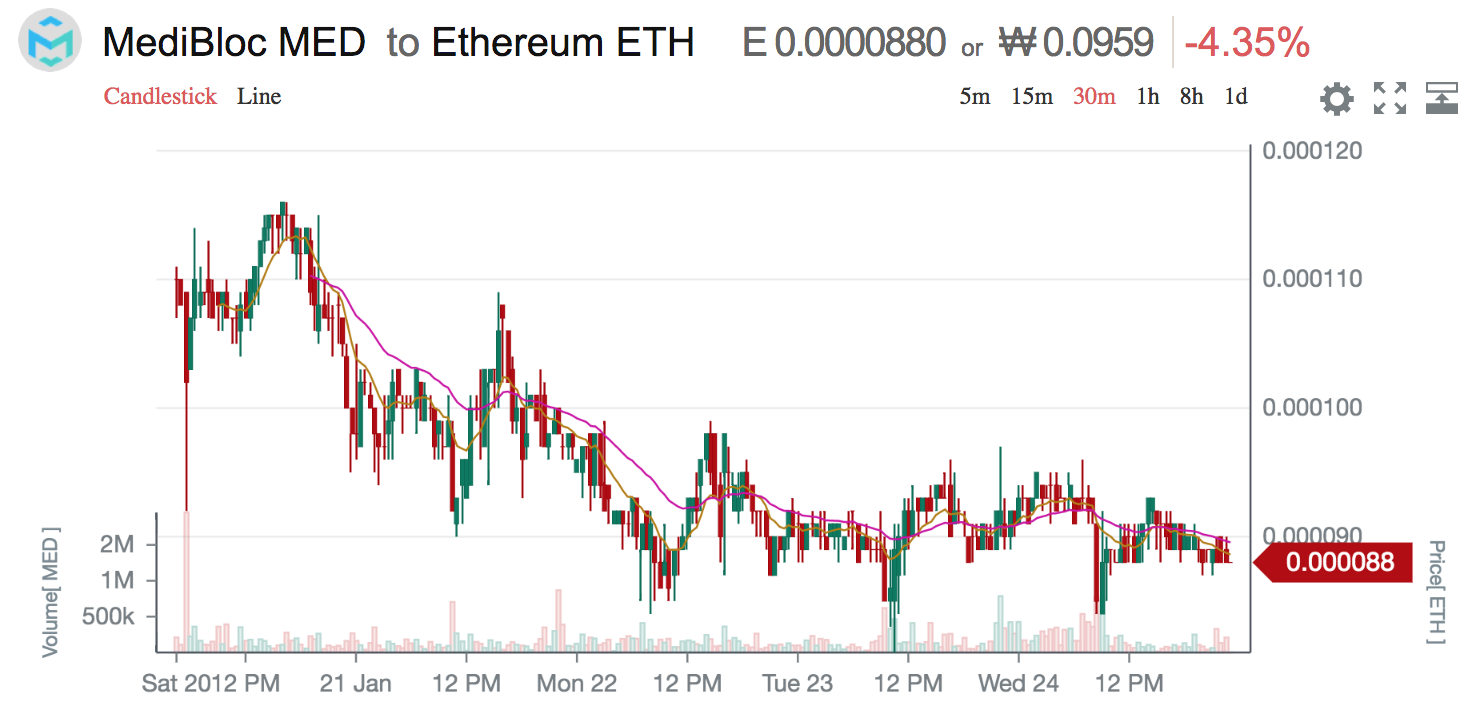Summary
- Extend the Blockchain technology to healthcare industry is not only an excellent application of Blockchain's decentralized trustless system but also a solution to the growing healthcare budget deficit in many developed countries
- Aside from South Korea, MediBloc has a large potential market including Japan, US, and many European countries.
- The recent price action of Medi token (MED) suggests MediBloc has a solid supporting community which is critical especially during a market downturn.
Introduction

Source: https://medibloc.org/en/
The idea of MediBloc platform is simple: using blockchain to store patient's medical record. Nowadays, most countries with a mature healthcare system use electronic medical records to store patient information. As the patient data piling up, this approach becomes more and more cumbersome and inefficient. For instance, in United States, medical professionals have already feel the need to build centralized medical information hubs in an effort to create better storage for and access to patient medical history. However, the centralized systems with a wealth of sensitive information are inevitably subject to malicious cyberattack. According to a Forbes survey, there were more than 112 million medical records breached in 2015 alone.
Moreover, each standalone central hub might run on different operating system, making the exchange of information among them difficult. The lack of communications among various central hubs leads to inconsistencies in one patient's record (typical missing data problems biostatisticians struggle to solve).
Blockchain technology provides a great solution to the aforementioned problem. As an incorruptible digital ledger of transactions (in this case, record of medical procedures), we can easily ensure the accuracy of the medical record. Meanwhile, as a decentralized network, each MediBloc node has full access to a patient's entire record once permission is given.
Market Potential
MediBloc is based in South Korea which has a similar healthcare environment as the US and many other developed economies. Based on Deloitte research, the global healthcare spend is projected to reach $8.7 trillion by 2020, about 10.5% of GDP. Most of these spending occurs in developed economies such as USA and transition economies such as China. Naturally, many stakeholders are pursuing new methods of cost reduction. MediBloc could step in and help the industry build a new healthcare eco-system with "maximum security (HIPAA privacy rules), high reliability (decentralized data storage), and high level of transparency (access to entire medical history once permission is given)" (MediBloc whitepaper).
I would also like to point out that as one the first cryptocurrencies targeting the healthcare industry, MediBloc has the first mover advantage when it comes to marketing. Being in vicinity of Japan and China could also facilitate MediBloc expansion once its platform is fully established.
Strong Community Support
One way to test a cryptocurrency's support is through its price action during market downturn. As regulators from South Korea and China further clamped down cryptocurrency market in the last few days, we saw a significant market correction throughout the space. While we did observe an over 50% correction in MED price but as Bitcoin price stabilizes, so does that of MED's. In fact, MED is one of the few cryptocurrencies that rebound over 35% after the latest market "crash."

Source: Gate.io
From a macro level, I would like to argue that South Korea is still considered the hotbed of cryptocurrencies, despite the recent political turmoil.
I wrote the above article myself. I am not receiving compensation for it. I am not a financial advisor and please do your own research before making any investment.